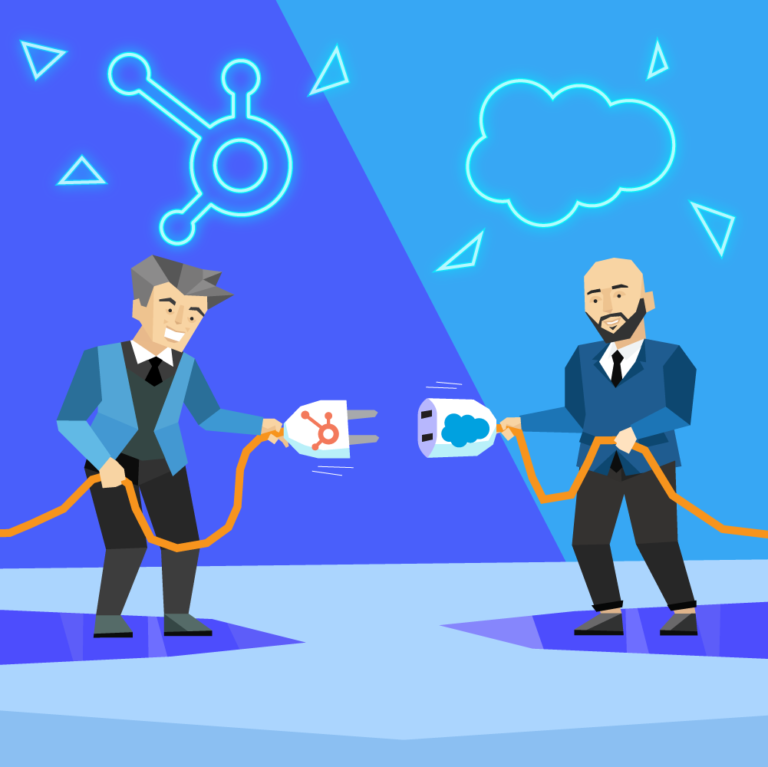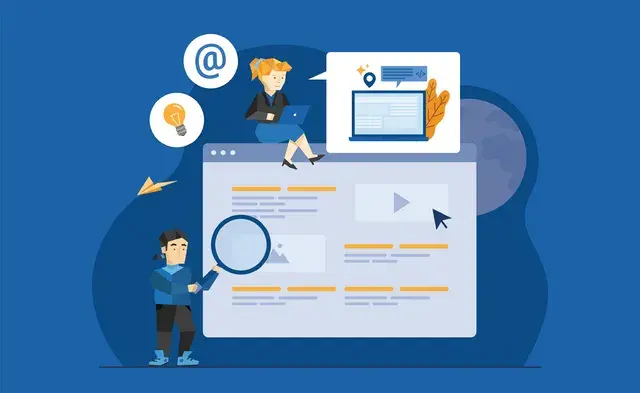How Chatbots can be Leveraged to Increase Operational Efficiency

Artificial Intelligence (AI), Deep Learning (DL), and Machine Learning (ML) are current buzzwords that identify advanced technological systems and concepts that have revolutionized both the operations, strategies, workflows and projects of SMEs and larger enterprises. One of the most popularly implemented forms of advanced AI is chatbots. Chatbots, or simply bots, are software robots that operate like a human – with near human intelligence – that automate tasks, increase operational efficiency, crunch and analyze data, and produce business intelligence, all via AI, ML and DL. They can also be used for marketing, sales and customer service workflows, as well as optimizing internal operations, such as HR tasks. Such AI bots are cost-effective software systems that have the potential to radically alter how businesses operate, while also reducing overhead, increasing customer engagement, producing a positive ROI, and increasing the bottom line of an enterprise. For instance, while email campaigns have, for decades, been the go-to form of business marketing, chatbots – according to statistics – have a greater chance of engaging with customers, while having a higher CTR than email campaigns at 15-60 percent versus 15-24 percent, according to a study by Octane. This is because of the increasing use of messaging apps, like Facebook Messenger and Slack. Such apps allow the feasible integration of chatbots into their systems, which customers are using increasingly (instead of email) for communicating with their favorite brands. Additionally, chatbots have much faster response times compared to email. For instance, Adidas noted a 266 percent increase in conversation rates by using automated chatbots. And as predicted by Gartner, by 2020 over 85 percent of customer interactions with companies will be via chatbots.
Chatbots are typically built utilizing code-based frameworks (e.g. Microsoft Bot Framework) or no-code development platforms, which are often implemented and deployed via back-end cloud systems (e.g. Microsoft Azure), while then being integrated into existing messaging/business apps, or websites. What makes chatbots even more unique is their ability to offer a completely novel method of user interaction with computer systems. As opposed to the early scripting commands used to communicate with computers, and then evolving to point-and-click interfaces and touch-based graphical user interfaces like menus and tabs, chatbots often use a conversational UI that allows users to speak to computer systems and interact with applications via human language. Such advanced AI bots utilize Natural Language Processing (NLP) to process human words, allowing them to operate as virtual assistants, automation bots, customer service reps, general assistants, advanced analysts, and more, all via human speech, or a hybrid approach that utilizes human speech with traditional user interfaces. Such a UI streamlines interactions, customer engagements, and workplace operations, ultimately optimizing all business workflows.
Chatbots are often used to automate externally-facing, customer-based corporate workflows, such as marketing operations, sales workflows, and customer service tasks. However, chatbots can be used in almost any industry, and in a variety of ways to increase the operational efficiency of any size company. Chatbots are being slowly implemented and leveraged in industries such as Medicine, Construction, and Engineering. One industry that is taking advantage of the power of chatbots is the finance industry. Chatbots are streamlining personal banking, analyzing the financial market, securing banking systems, automating internal finance department workflows, and even managing companies’ assets and investments.
Corporate Finance and Financial Management
The overall function of chatbots is to use advanced AI for workflow automation. Utilizing Machine Learning – the reprogramming of an AI bot’s own algorithms based on data and experience, allowing it to operate and behave more effectively in the future (without it being explicitly programmed to do so) – along with Deep Learning (learning by experience) – allows chatbots to parse, analyze and crunch large amounts of corporate financial Big Data. The management of a corporation’s financial assets, operations and strategies is crucial to its success. One of the most important ways chatbots can alter how businesses manage their financial operations is by employing bots to analyze financial data and produce actionable insights (Business Intelligence) so executives can chart more effective strategies in the future. All subdomains of an enterprise’s financial management department(s) can benefit from the use of chatbots, allowing all finance officers to make more informed decisions based on thoroughly analyzed financial data and the analysis of the pertinent market. Since every enterprise needs to establish a long-term (strategic) and short-term (tactical) plan or blueprint for financial success, chatbots can be integrated early on in the planning stages by analyzing market data and help officers craft the most appropriate financial management strategies for the enterprise at the company’s inception.
AI/Chatbots and the Finance Department
The finance division of any company is key for long term and daily monetary management, investment decisions, budgeting, overseeing all payments, managing all assets, producing financial reports, completing accounting operations, and much more. Chatbots can increase and optimize all finance department workflows by reducing overhead and helping officers to make more sound financial decisions. Repetitive and mundane tasks completed by personnel can often be automated by chatbots, allowing employees to take on more critical tasks. With the use of conversational UI and NLP, all operations can be streamlined without the use of complex interfaces and/or menus, which gives personnel a virtual assistant that can effectively aid with the quick completion of all minor and major tasks.
Accounting
Accounting is a core part of any enterprise’s finance department, where all company financial transactions are systematically recorded, processed and managed via the general ledger, which serves as the source for all financial reports. As a key financial operation within any company, accounting workflows must be done precisely, quickly, and efficiently, while also mitigating all mistakes and/or contradictions within financial reports. While bookkeeping was initially done on paper, computer systems allowed companies to more efficiently record large amounts of financial data in their ledger. Chatbots are the logical evolution of this system, allowing AI bots to automate the recording (and analysis) of financial data in a company’s ledger, and freeing personnel to carry on more critical tasks. The added bonus of complex algorithms could feasibly allow such AI bots to minimize mistakes that often plague companies due to human error.
Accounts Payable
The Accounts Payable (A/P) process within a company’s finance department entails managing all outgoing payments associated with vendors, creditors, suppliers, etc. This includes the processing and management of invoices, checks, payments and vendor-relationships associated with a company’s operations. Chatbots can be used to minimize late payments, remind officers about payment due dates, and can automate payments, process invoices automatically, analyze current invoices versus past invoices, and can even operate as digital “secretary” assistants that manage vendor/supplier relationships.
Accounts Receivable
Accounts Receivable (A/R) entails the management, processing, recording and analysis of all payments collected by a company for its products and services rendered to end-users (clients and customers). A/R processes require personnel to ensure that payments are received on time (according to invoices and/or contracts), and that late payments meet the pertinent penalties. Chatbots can be used to automate collecting payments and making records, along with reminding clients about payment due dates, and processing all invoices and records as payments are received. Such an AI bot can minimize overhead, automate tasks effectively and quickly, and allow personnel to carry out more critical tasks that require specialized human skills. Chatbots can complement human teams of personnel and allow enterprises to remove personnel from certain unnecessary roles within the organization, thus minimizing costs and increasing efficiency.
Payroll (HR Bot)
As noted by OpsDog, the payroll group within an organization “is responsible for the administration and documentation of all salaries, wages, bonuses and deductions (payroll tax, social security) received by employees. In conjunction with HR, payroll workflows can be optimized via an HR bot. An HR bot is a chatbot used to optimize internally-facing workflows associated with the Human Resources Department, helping a company to be more efficient and productive. An HR bot can automate payments to personnel, record all data associated with salaries and wages, process deductions, and even analyze appropriate payroll taxes. Utilizing a chatbot for such payroll workflows helps to minimize human error, process payroll documents quickly, and to automate payroll operations without the need for human action.
Chief Financial Officer (CFO): How Chatbots can Aid with Leadership, Forecasting and Management
The Chief Financial Officer (CFO) of an organization is a C-suite, high level executive responsible for the management, overseeing, strategizing, and leadership of an entire company’s finances, including financial forecasting, management of all financial assets, financial reporting, record-keeping, compliance and auditing, and financial planning. A CFO has a myriad of responsibilities, including:
- Financial Reporting of a Company’s Financial Information
- Management of all Financial Investments, Assets and Cash Flow
- Management of all Financial Risks
- Overseeing the Capital Structure of the Company
- Economic Planning and Financial Forecasting
- Allocation of Financial Resources within the Company
- Budgeting for Projects and all Aspects of the Company
- Financial Analysis of all Corporate Financial Data
A virtual assistant chatbot could greatly aid any company CFO with financial data analysis, the production of more effective and efficient financial strategies/plans, the management of financial risks via forecasting and risk assessments, the automation of record keeping, and the automation of financial reporting. Ultimately, a smart AI-bot can greatly aid a CFO with being more efficient with his/her responsibilities by operating as an AI-virtual secretary, and can help him/her be a more effective manager and leader.
Financial Economics
Financial economics is associated with economic analysis, the analysis of financial markets, financial forecasting, financial data analysis, and the use of accounting tools in conjunction with such analyses for the production of effective financial strategies. Within any SME or large corporation, the CFO is typically in charge of managing the above financial aspects of the organization. Financial economics includes the management of financial instruments to increase a company’s overall liquid assets. The use of chatbots within the realm of financial economics – in conjunction with Big Data – allows a company to leverage robust AI systems that can interact with personnel via human speech to analyze massive financial datasets that reveal actionable insights, financial risks, and critical aspects of the financial market to help a company craft more effective future strategies.
Financial Instruments
For a company to be financially successful, it must manage its treasury/cash and liquid assets to reduce risk and ensure that all future projects can be adequately funded. Such cash management workflows can be managed, processed and recorded automatically by smart-AI bots, while also monitoring financial markets and trade/manage financial instruments (assets/investments), and alerting financial officers of key events in the market. Smart bots help to maximize the use of time and resources within a company and increase shareholder values seamlessly and efficiently.
Personal Banking and Financial Advice AI-Chatbot
While companies are leveraging chatbots in amazing ways to automate finance workflows, chatbots can also be used as a novel way for end-users to engage with their banks and/or personal finance applications via a conversational UI and NLP. Chatbots can monitor the markets and analyze an end-user’s personal financial data to give targeted advice on how to invest, how to save, how much to spend monthly, and can even help end-users with their monthly, weekly or annual budgets. To save even more time and increase accuracy, bots can automatically record and analyze data that can help with personal quarterly or annual taxes.
Banks using Chatbots
As noted by Chatbots Journal, traditional banks have a few key challenges that Chatbots can help to solve:
- Consumer expectations – Typically associated with customer service and technology that works seamlessly.
- FinTech innovations – The evolution of Financial Technology means more competition, forcing many banks (which often use legacy systems) to conduct a technological overhaul.
- Increasing Regulations – Increasing Financial regulations means that banks need to spend more overhead on managing secure banking systems.
Chatbots can also be used to increase customer engagement and the automation of more efficient and quick customer service workflows, while offering a more seamless experience. Bots offer banks a cheap and innovative technological user interface, and a more secure banking platform.
A growing number of banks, who see the value in AI, are currently using chatbots to boost their business, including Bank of America, JPMorgan Chase, and Capital One, among others. Each bank uses chatbots as digital assistants and voice-bots to aid customers in their banking operations, while JPMorgan Chase’s bot, COIN, is used to quickly analyze complex legal contracts faster than a human lawyer can, and Capital One’s bot, Eno, helps customers to manage their money and pay credit card bills.
The Future of AI Bots and Finance: Blockchain Technology
Blockchain technology is a novel and advanced technology that provides a decentralized ledger for transparent financial transactions associated with digital currency (e.g. Bitcoin). As a robust financial system associated with virtual currency, many experts believe that blockchain technology is the future. While blockchain technology can be used for the development of a variety of decentralized financial systems, AI bots have the potential to further evolve blockchain technology by solving some of blockchain’s biggest challenges, including:
- Security: A little spoken of advantage of chatbots and AI is increased cyber security. Chatbots have the ability to automate the monitoring of apps and networks, and can potentially be integrated with firewalls and blockchain systems to ensure that cyber criminals do not hack important financial networks and systems.
- Regulations: While countries around the world are developing the pertinent laws for blockchain technology, AI bots can operate as virtual cryptocurrency assistants by helping users manage the pertinent laws when investing and using blockchain virtual currencies.
- Personal Financial Safety: One of the most critical aspects of storing and managing one’s personal virtual currencies is the safety in doing so. AI bots, like personal banking bots, can help users manage their virtual currencies and secret keys, along with hardening all cryptography systems associated with the user’s blockchain to buy and store their virtual currency.
With the advent of smart contracts, AI-bots are indispensable for automating all aspects of the contract, the transactions, and the recording of all pertinent data within the blockchain.
AI-Chatbots and the Future World of Finance
Chatbots have massive potential within the realm of finance, whether it be associates within SMEs/larger enterprises, or personal end-users. AI bots can increase efficiency and accuracy, increase productivity, automate a myriad of workflows, and can help financial institutions and finance departments save resources, time and money.









